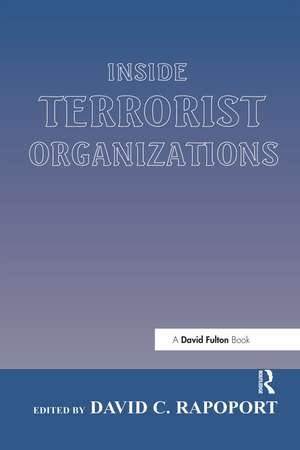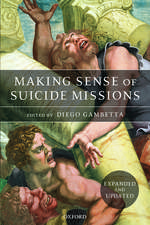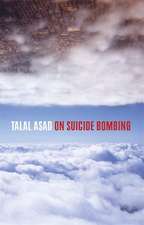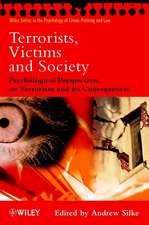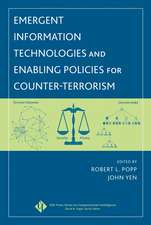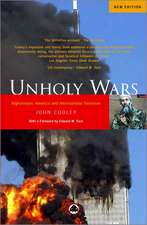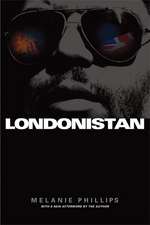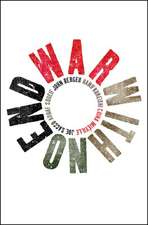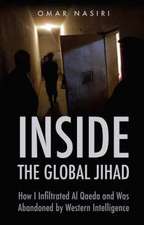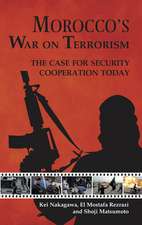Inside Terrorist Organizations
Editat de David C. Rapoporten Limba Engleză Paperback – 26 ian 2001
Preț: 416.64 lei
Nou
Puncte Express: 625
Preț estimativ în valută:
79.75€ • 86.65$ • 67.03£
79.75€ • 86.65$ • 67.03£
Carte tipărită la comandă
Livrare economică 21 aprilie-05 mai
Preluare comenzi: 021 569.72.76
Specificații
ISBN-13: 9780714681795
ISBN-10: 0714681792
Pagini: 286
Dimensiuni: 156 x 234 x 46 mm
Greutate: 0.46 kg
Ediția:Adnotată
Editura: Taylor & Francis
Colecția Routledge
Locul publicării:Oxford, United Kingdom
ISBN-10: 0714681792
Pagini: 286
Dimensiuni: 156 x 234 x 46 mm
Greutate: 0.46 kg
Ediția:Adnotată
Editura: Taylor & Francis
Colecția Routledge
Locul publicării:Oxford, United Kingdom
Cuprins
Introduction, David C. Rapoport. Part 1 Internal structure and conflict: theories of terrorism - instrumental and organizational approaches, Martha Crenshaw; the international world as some terrorists have seen it - a look at a century of memoirs, David C. Rapoport; the internal dynamics of the FLQ during the October crisis of 1970, Ronald D. Crelinsten; battlegroup divided - the Palestinian Fedayeen, David T. Schiller; the shining path and Peruvian terrorism, Gordon H. McCormick. Part 2 Motivations and justifications: the terrorist revolution - roots of modern terrorism, Zeev Ivianski; when terrorists do the talking -reflections on terrorist literature, Bonnie Cordes; the logic of religious violence, Mark Juergenmeyer; from Messianic pioneering to vigilante terrorism - the case of the Gush Emunim underground, Ehud Sprinzak; cultural narrative and the motivation of the terrorist, Khachig Tololyan; terror as an instrument of foreign policy, Grant Wardlaw; leaderless resistance, Jeffrey Kaplan.
Descriere
These original essays describe the internal life of terrorist organizations in fascinating detail. They show how no description of terrorist behaviour is adequate without a grasp of the deep tensions that often characterize such groups, and an appreciation of how firmly implanted in our culture terrorist traditions have become, since the middle of the nineteenth century.
